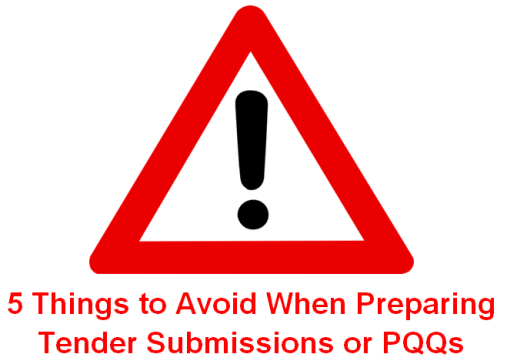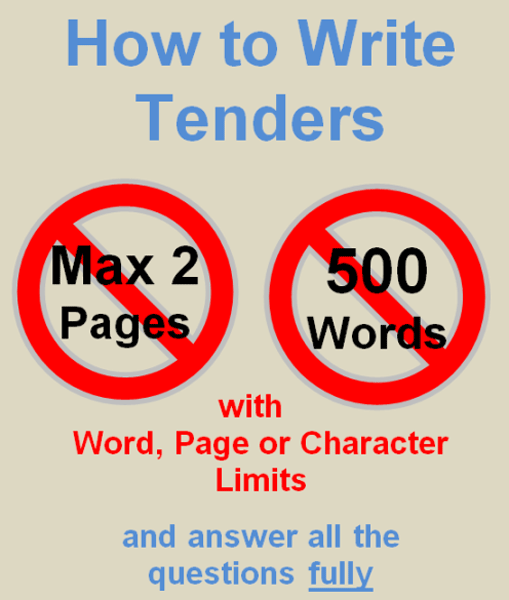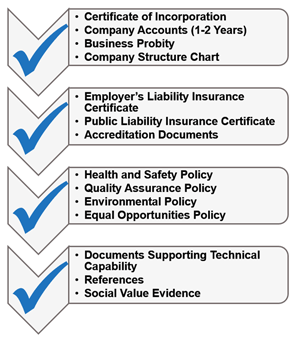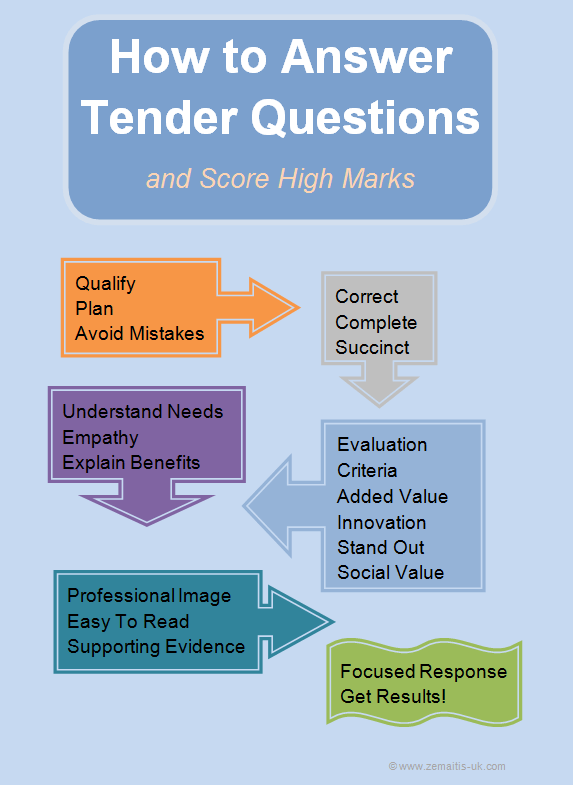5 Things to Avoid When Preparing Tender Submissions

One of the very first posts that I wrote was on the 10 most common tendering mistakes. It shows the main errors made when preparing tender submissions or PQQs. Many of these are pretty fundamental mistakes such as missing information, which will quickly lose you marks.In this post I want to explore some more potential tendering pitfalls. These are less about omissions but more about mindsets or your approach. Make sure that you avoid them when next preparing tender submissions or PQQs.
When Preparing Tender Submissions or PQQs Don’t Make These Mistakes
1. Get ‘Tender Rage’
This usually applies to people who are new to tendering. They feel annoyed by having to tender for a contract in such a complicated manner. But most of us have got angry about the whole tendering process. I call this ‘Tender Rage’. Or ‘Getting the Grey Mist’ (there’s too much paperwork involved to get the full Red Mist!).
I can completely understand why people get it. Tenders involve a lot of effort. You have to deal with numerous complex questions and pricing schedules as well as long contracts and specifications. And let’s face it, some tenders are really badly written.
I’ve seen people compile a list of 30+ clarification questions! Not just because there are that many aspects on which they are unclear, but because they want to hit back at the tender panel.
I always try and remain calm and explain to clients why organisations tender. I also explain the tendering process. Then I recommend taking a break and starting afresh the next day. But also to make sure that the tender opportunity is for you (see next point No. 2).
…5 Things to Avoid When Preparing Tender SubmissionsRead More »
5 Things to Avoid When Preparing Tender Submissions Read More »





